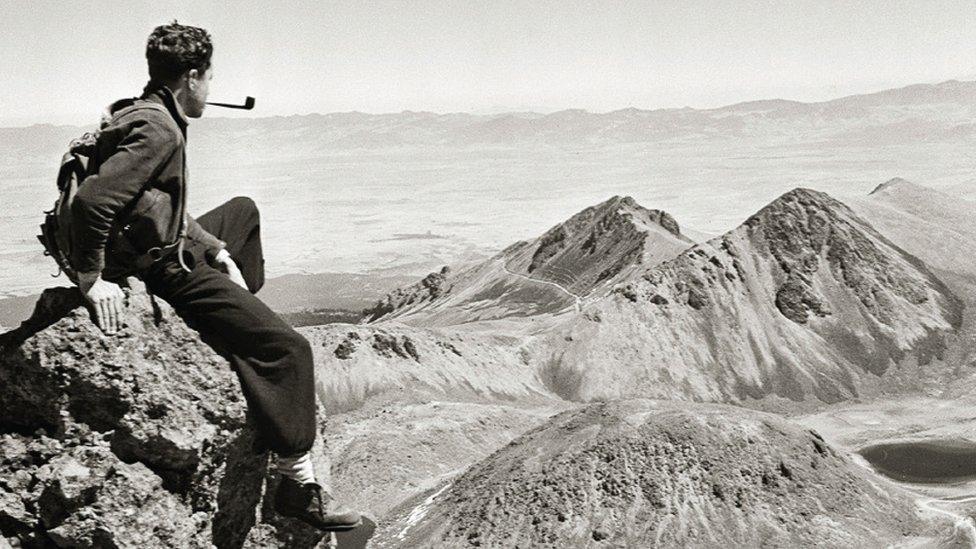Costa Book of the Year: Monique Roffey on mermaids, dreaming and myths
- Published
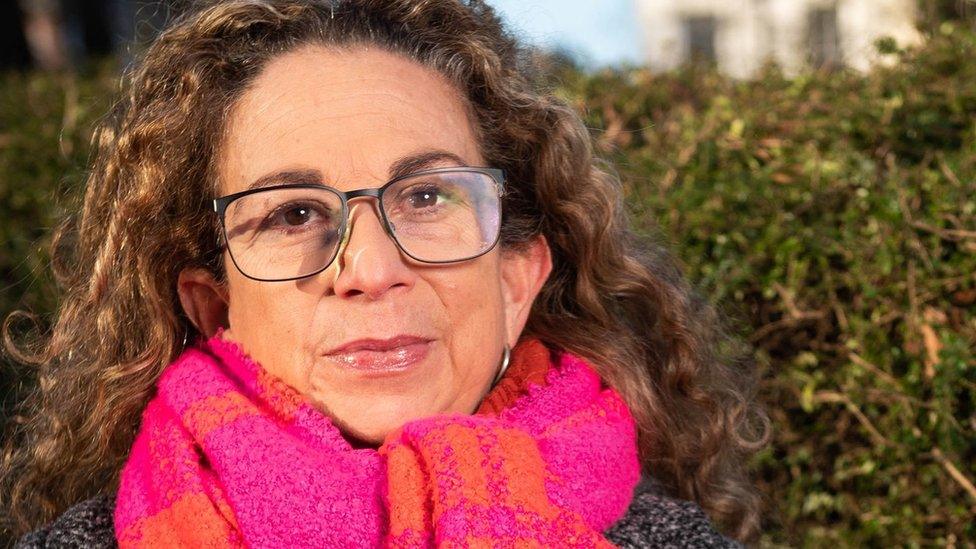
Author Monique Roffey says it is "part of my job to be original"
In awarding Monique Roffey the Costa Book of the Year prize, the judging panel described her novel, The Mermaid of Black Conch, as "utterly original" and said it felt "like a classic in the making".
Panel chairwoman Prof Suzannah Lipscomb described it as an "extraordinary, beautifully written, captivating, visceral book, full of mythic energy and unforgettable characters".
The author herself, while admitting she was "delighted" to receive the award, is a little more modestly circumspect.
"I can't let that go to my head too much," she says.
"I think that the proof will be in the pudding over time. A classic is something that's made over decades."
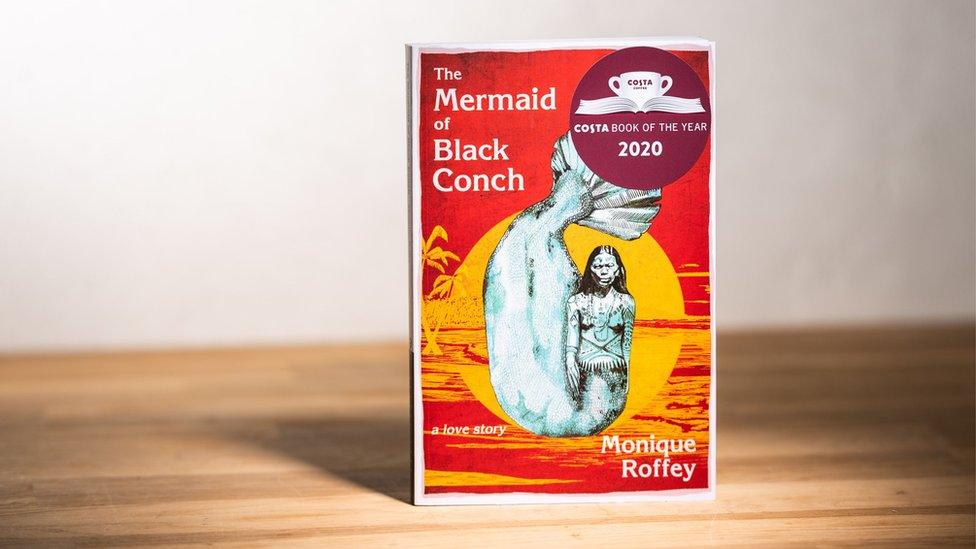
The judges called Roffey's book "extraordinary", "beautifully written" and "captivating"
The novel is Roffey's sixth and draws on what she calls her "parallel cultural life", which she splits between her Trinidad birthplace, east London home and Manchester Metropolitan University teaching commitments.
She describes it as "a rewrite of an old myth", a story told by the Taino - an indigenous ethnic group who live across the Caribbean and predate the arrival of Europeans in the 15th Century - about a woman who is "cursed into exile" for being "too pretty, too talented and rather annoying".
She says she decided to tackle the subject as "many old stories, especially ones about women, are problematic and are from an ancient patriarchal system".
"They need an update [and so] my mermaid gets recaptured in fairly modern, contemporary times," she continued.
"I wanted to give her the right of passage that she was denied [in the myth], which is love, romantic love, erotic love, and see how a community would respond to her."
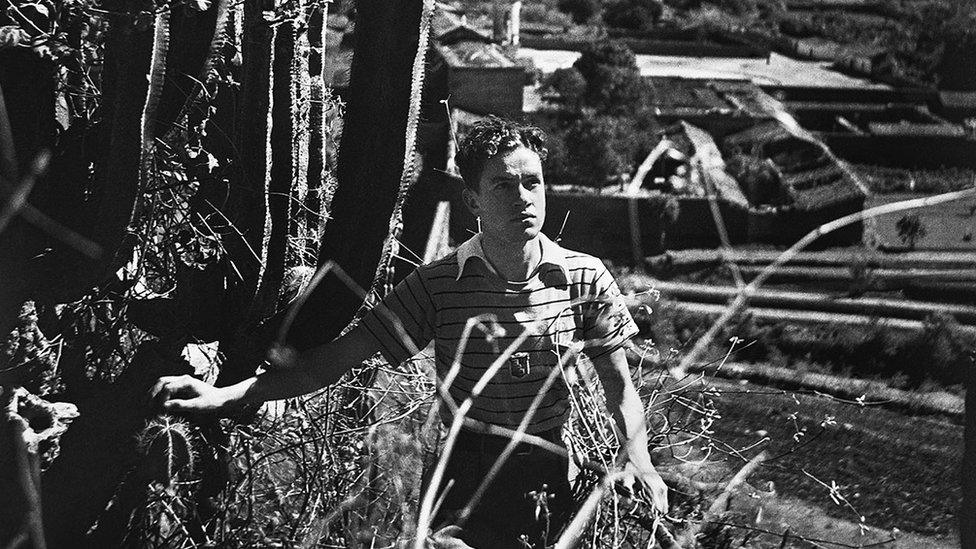
Roffey says her writing follows in the footsteps of writers like Isabel Allende and Juan Rulfo (shown above)
She says the subject may appear fanciful to some of her audience, but for those who know her Caribbean home, it is not so far-fetched.
"Where I come from, really unlikely and improbable things happen every day, which European people might think are magical, but it's not magical to us," she says.
"All kinds of things happen that are unreal or surreal."
She says it also follows the tradition she has mined for each of her six books, which she says all "have an element of magical realism".
"You might say it's a leaning towards a certain way [as] magical realism comes out of the Americas.
"If you think of writers like [Gabriel Garcia] Marquez, Isabel Allende, Juan Rulfo - all these writers have been doing it for a long time, so it's kind of in the milk.
"It's like mother's milk to me to look at things in a way."
That also gives her something which she says is vital to any would-be author - originality.
"You're not in the game unless you've got a lot of imagination," she says.
"Every writer that wants to pitch their hat into this creative endeavour, you've got to come with bags of ideas and originality.
"So I see it as part of my job to be original."
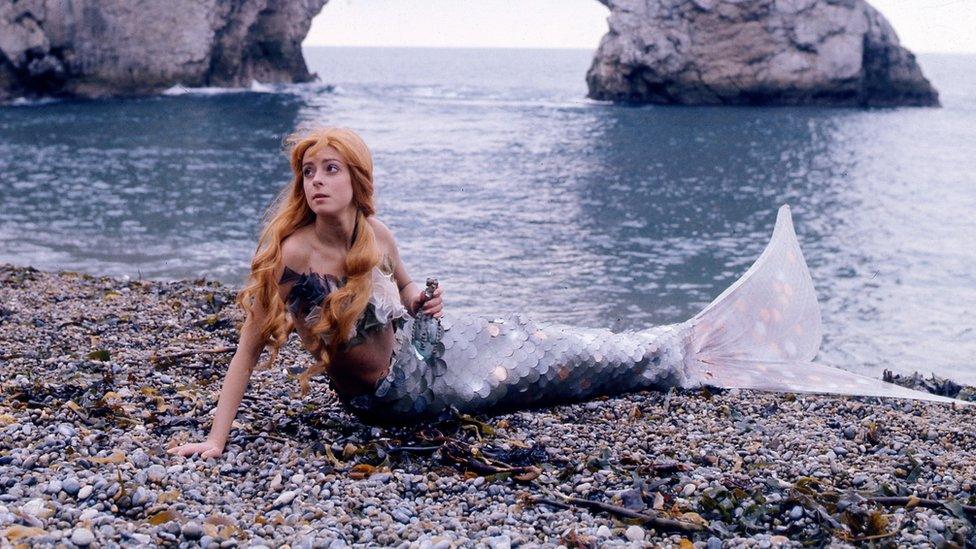
Roffey says humanity has been "dreaming up mermaids for millennia"
It is that which led her to a mermaid, a creature which she says combines both ancient beliefs and a much-more modern way of thinking.
"Humanity has been dreaming up mermaids for millennia," she says.
"She's a pan-global phenomenon. She's an archetypal part of our conscious and she's an emblem for quintessential outsiderness.
"She is an other. Stuck, cursed, ambiguous. We love dreaming her up. We've been dreaming her up for a very long time."
And dreaming, for Roffey, is an essential part of the long process of writing a novel.
Her best piece of advice for anyone wanting to follow in her footsteps is a simple one: "Give yourself a couple of years easily."
"That's not long [to write a novel].
"You need a period of dreaming and a period of research and then you need a period of drafting and writing before it's ready, and that's a couple of years."

Why not follow BBC North West on Facebook, external, Twitter, external and Instagram, external? You can also send story ideas to northwest.newsonline@bbc.co.uk, external
- Published26 January 2021
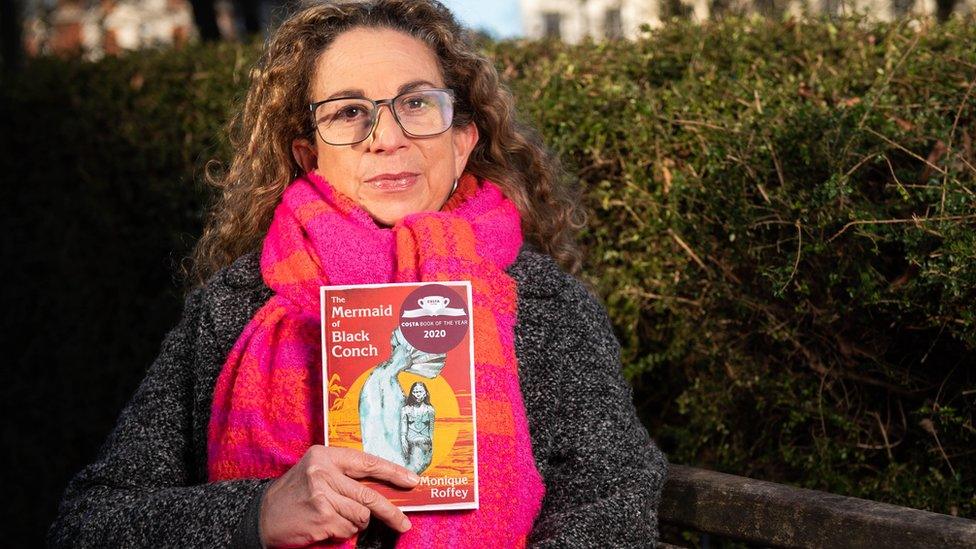
- Published16 May 2017
